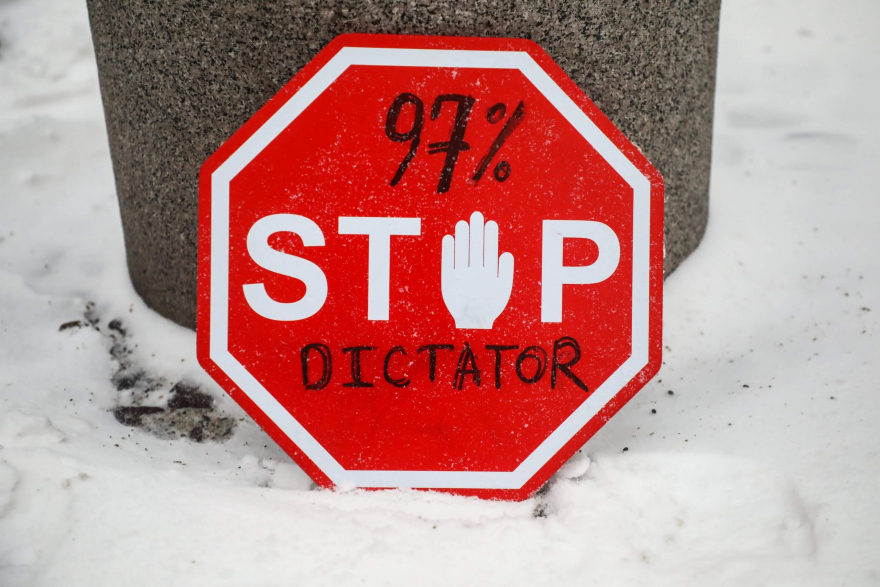Human rights groups to U.N. Special Rapporteur on Belarus: it’s time to stop internet shutdowns, website blocking, anti-extremism laws
On February 19, Access Now, Agora, Article 19, Human Constanta, International Media Support and Internet Protection Society raised serious concerns about the escalating human rights situation in Belarus, submitting detailed information to Anaïs Marin, U.N. Special Rapporteur on the situation of human rights in Belarus. The groups focused on internet shutdowns and website blocking, and the use of anti-extremism laws against civil society and the opposition — both of which are being initiated by authorities in the context of a larger endeavor to stifle freedom of expression and peaceful assembly in Belarus.

“Internet freedom abuses highlighted in this submission are an arm in the sophisticated machinery built by the authorities throughout the years of Lukashenko’s rule to muzzle peaceful dissent,” said Gulnara Akhundova, Head of Global Response Department at International Media Support. “In character with the physical brutality displayed against protesters in recent months, this assault on the digital rights of Belarusians is undoubtedly a part of the grand scheme to silence their critical voice.”
The joint submission to the Special Rapporteur is part of extensive advocacy efforts to expose and condemn the ongoing human rights abuses actively perpetrated by the Belarusian authorities, 194 days since the August 9, 2020 elections — a dark day for democracy that has been deemed neither free nor fair by multiple actors.
“While national laws and judiciary have proved their ineffectiveness in maintaining justice in Belarus, we are relying on international law and the international community,” said Alexey Kozliuk, a co-founder of Human Constanta. “We reiterate that private IT-companies also have human rights responsibilities and unethical business practices should not be tolerated.”
“Authorities in Belarus have a blueprint in place to systematically deny people their rights to free expression and assembly, and access to information,” said Natalia Krapiva, Tech Legal Counsel at Access Now. “The government of Belarus, tech companies, and other Member States all have a role to play in reinstating and upholding fundamental rights. Today, we’ve laid out these measures for the U.N. Special Rapporteur.”
The submission includes six tailored recommendations for the Special Rapporteur’s consideration, specifically requesting the Belarusian authorities, tech companies operating in the country, and other Member States to take the following actions:
Belarusian Authorities
-
Immediately stop and refrain from all future interference with the access to the internet, including mobile internet and specific websites, and provide information concerning the orders and implementation of internet shutdowns; and
-
Bring national laws and their enforcement in compliance with international standards in order to prevent arbitrary limitations on the rights to freedom of expression, peaceful assembly and association, and revoke “anti-extremism” laws in their current form.
Technology companies
-
Immediately stop facilitating internet shutdowns and censorship in Belarus and comply with UNGP and OECD Guidelines, including through contesting the legality of government orders, preserving and providing evidence, and providing effective remedies for past disruptions; and
-
Join civil society and peer companies to push back against government censorship and repression.
Other Member States
-
Immediately stop providing censorship technologies to the Belarusian government; and
-
Ensure that companies in their jurisdictions that facilitate and aid censorship, shutdowns, and other abuses abroad are held accountable.
The submission builds on previous advocacy outputs, including the Urgent appeal concerning internet service disruptions in Belarus in the contextof the presidential elections of 9 August 2020 to U.N. Special Rapporteurs, and the November, 2020 Submission pursuant to Human Rights Council resolution 45/1 to the U.N. Special Rapporteur on the situation of human rights in Belarus.
 @bajmedia
@bajmedia
